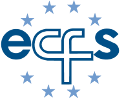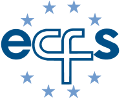Human adult airway epithelial basal cells are stem/progenitor cells of airway surface epithelium
R. Hajj1, P. Lesimple1, T. Baranek2, R. Lenaour2, E. Puchelle1, C. Coraux1.
1INSERM U514, CHU Maison Blanche, 2EA3796, IFR53, Reims, France
In numerous airway diseases such as cystic fibrosis, the epithelium is severely damaged and must regenerate to restore its defense functions. Although the human airway epithelial progenitor/stem cells have not been clearly identified yet, it has been recently suggested that epithelial progenitors exist among both fetal basal and suprabasal cell subsets in the human airways.
We analyzed the capacity of human adult basal cells, isolated from nasal polyps, to restore a well-differentiated airway epithelium. Cells were seeded in epithelium denuded rat tracheae that were grafted subcutaneously in nude mice or on collagen coated porous membranes and grown at the air-liquid interface. We used tissue factor (TF) and tetraspanin CD151, expressed specifically on the surface of basal cells of human airway epithelium, to isolate positive cells with a FACSAria cell sorter. Sorted positive and negative populations were also analyzed for telomerase activity by the telomeric repeat amplification protocol.
After cell sorting, pure (>99%) viable TF/CD151-positive basal cell population adhered and proliferated on epithelium-denuded rat tracheae and on collagen-coated porous membranes and was able to restore a fully-differentiated mucociliary airway epithelium, whereas viable negative population (purity >97%) did not. The stem cell telomerase activity was detected in the TF/CD151-positive population, but not in TF/CD151-negative cells.
Our results demonstrate that human adult basal cells are airway epithelial progenitors. Telomerase activity suggests the presence of a stem cell population among the sorted basal cells.
This work is funded by Association Vaincre La Mucoviscidose and ATC "Adult Stem Cells".

